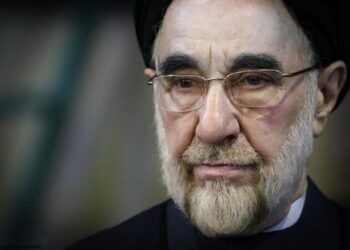bombing of the Marine barracks in Beirut collect some money—but not necessarily from Iran.
The sanctions bill, signed into law by President Obama August 10, specifically abolishes a claim the Central Bank of Iran has made in a legal battle in federal court in Manhattan over $1.75 billion in securities frozen in a New York bank account that the Central Bank says it owns.
The plaintiffs in that case are trying to force the Central Bank to pay damages for Iran’s suspected role in helping Hezbollah carry out the barracks attack.
The $1.75 billion was uncovered by the US Treasury Department in 2008 and sits in a New York branch of Citibank, part of Citigroup. Treasury says the money is effectively Iranian funds.
The lawsuit, filed in 2010, argues that the funds should go toward paying $2.65 billion in damages awarded to them in 2007.
In court papers, the Central Bank of Iran has argued that the funds cannot be seized because of the doctrine of sovereign immunity, which holds that foreign states or their agents are not subject to another nation’s laws.
But Section 502 of the new sanctions law takes direct aim at that defense.
The section specifically declares that the Central Bank of Iran “is not immune” under the Foreign Sovereign Immunities Act.
It further states that the “financial assets that are identified” in the Manhattan case “shall be subject to execution or attachment … to satisfy any judgment to the extent of any compensatory damages awarded against Iran.”
Over the years, there have about $20 billion in default judgments against Iran levied by US courts in favor of American victims of terrorism, but never collected.
David Lindsey, a New York-based lawyer for the Central Bank of Iran, told Reuters the new sanctions law could affect his client. “The purpose of this 10th inning change in the law was to do away with our defenses,” Lindsey said. “No allegations have ever been made that the Central Bank of Iran was involved in the 1983 attack.”
Julian Ku, a professor at Hofstra University’s School of Law, called the statute modification “unusual.” He said, “If the payment is made, I think it would be the first such payment, and certainly the largest ever paid out in a US court against Iran.”
The plaintiffs must file supplemental briefs in light of the new legislation, and the judge must eventually decide whether to order that the funds be turned over—a process that could take years.
Congress has previously intervened numerous times to try to help terrorism victims obtain compensation from foreign states. But the previous legislation has been weak and full of loopholes and never in the end benefited those suing Iran.
What is unusual here is that the new law directly addresses an active case, legal experts said. “This is a little bit unusual because it changes a law about Iranian sovereign immunity in just one case,” said Roger Alford, a professor at the University of Notre Dame Law School. “How did the lawyers get Congress to do that?”
The amendment was introduced last winter by Senator Robert Menendez, a New Jersey Democrat. A senior aide to Menendez told Reuters the lawmaker’s effort was spurred by a visit from a victim’s family from his home state.
Experts and lawyers involved in such cases said the defendants in the Manhattan case may seek to challenge the constitutionality of Congress changing the statute. One way would be to argue that the legislative branch had improperly interfered with a judicial matter.
There is another wrinkle in the claims over the $1.75 billion held in the Citibank account. The money was deposited there by Luxembourg-based bank Clearstream, which holds Iranian funds in accounts in Luxembourg.
Clearstream said in court papers in July that if it is forced to turn over the $1.75 billion in New York, it may be barred from docking an equivalent sum from a Central Bank of Iran account in Europe because of European sanctions against Iran, meaning the plaintiffs would get their money from Clearstream and not from Iran—although the stated purpose of the entire legal exercise is to make Iran pay for supporting terrorism.
Lawyers close to the case in New York say the $1.75 billion would currently be shared among about 1,350 people, which includes families of victims of a 1996 truck bomb attack at the US military complex in Khobar in Saudi Arabia.














